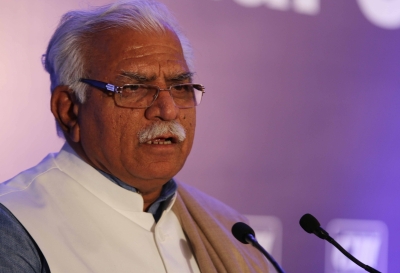Haryana reduced electricity transmission losses to 13.43%: Khattar
By IANS | Published: February 16, 2023 06:57 PM2023-02-16T18:57:03+5:302023-02-16T19:15:07+5:30
Chandigarh, Feb 16 Haryana Chief Minister Manohar Lal Khattar on Thursday said the government has succeeded in reducing ...

Haryana reduced electricity transmission losses to 13.43%: Khattar
Chandigarh, Feb 16 Haryana Chief Minister Manohar Lal Khattar on Thursday said the government has succeeded in reducing the electricity distribution and transmission losses to 13.43 per cent, which was 25 to 30 per cent during the rule of previous governments.
Giving relief to the consumers, the government has not made any change in the electricity rates, he said. The state has more than 76 lakh consumers of all categories.
The Chief Minister said it has been a great example of power management that despite the less availability of electricity many times the government provided electricity to the consumers.
The Chief Minister said in 2022-2023 in category Rs 2 per unit was charged from zero to 50 units, while Rs 2.50 was charged from 51 to 100 units.
In category II, Rs 2.75 was charged from 0 to 150 units, while Rs 5.25 from 150 to 250 units, Rs 6.30 from 251 to 500 units and Rs 7.10 from 501 to 800 units.
This year also, he said, there has been no change in the fixed rates of category I and II of domestic consumers.
Similarly, in the agriculture sector, Rs 200 per horsepower per year has been fixed for agricultural tubewells with motor of 15 horsepower and above.
Likewise, the rates fixed at Rs 15 per horsepower per month for unmetered tubewells and Rs 12 per horsepower per month for metered tubewells above 15 horsepower will continue this fiscal as well.
The Chief Minister said the subsidy to the agriculture sector will continue as before.
He said the government has replaced old electrical wiring on a large scale, besides new condensers have been installed on old transformers to reduce line losses.
He said new sub-stations and old stations have been increased for uninterrupted power supply to the consumers. Besides, the segregation of feeders has been done to reduce the load.
Disclaimer: This post has been auto-published from an agency feed without any modifications to the text and has not been reviewed by an editor
Open in app